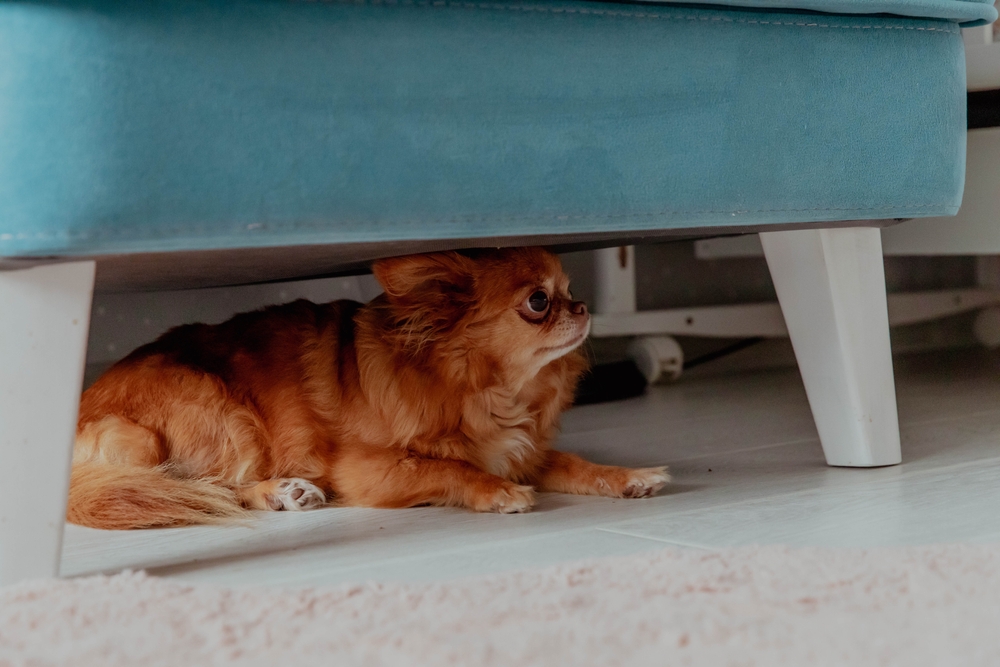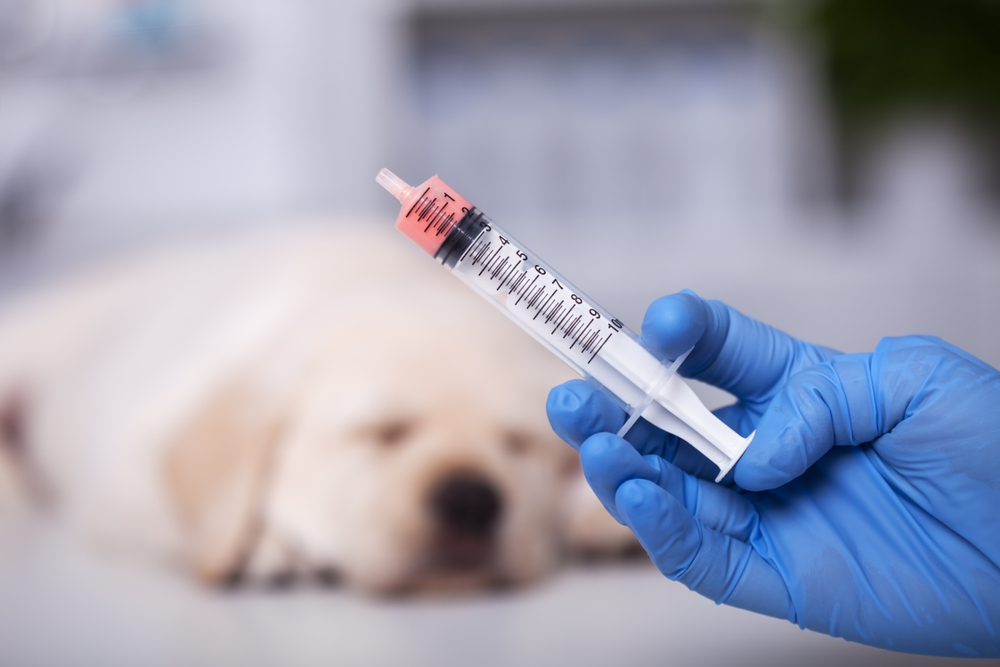The role of every dog owner is to do everything it takes to keep their puppy happy and healthy. So, it’s understandable that many owners panic when their dog displays unusual behavior. When your dog suddenly stops wanting food as much or stops eating altogether, it may cause you some stress.
If you are interested in the reasons why your dog might stop eating, stick with us for some useful information.

The 9 Possible Reasons Your Dog Is Not Eating
1. Your Dog Doesn’t Like the Food
We all want to give our dogs the best, but sometimes, dogs can become spoiled and picky when it comes to their food. So, if they stop eating suddenly, this just might be a sign they don’t like the food you gave them.
You should check the expiration date and see if the food is still usable. If it isn’t usable, you shouldn’t give it to your dog because it can potentially cause health problems.
This can also happen when you introduce a new type of food to your dog; if they don’t like the smell or the taste, they may refuse to eat it.


2. Overfeeding
If your dog is not hungry, they won’t eat. If your dog’s body condition score is on the heavier side, you may be offering them too much food every day. These dogs will often eat tastier food if offered to them, but it’s important not to do this as it will create unhealthy eating habits. Being overweight can increase the risk of health problems like joint disease and even some cancers. If you’re not sure how much your dog should eat, check the feeding guide on your dog food packaging and talk to your veterinarian.
3. Eating at a Particular Time of Day
As we all know, dogs are intelligent animals, and they can quickly form habits. In this case, they can get used to being fed in a particular part of the day and refuse to eat during the other periods. For example, if your dog likes to eat at night, they may refuse food in the morning. While most dogs will chow down whenever they get the chance, this may be the reason your dog’s not eating.


4. Stress
Like humans, many life changes can affect your dog and their appetite. For instance, moving can be very stressful for your dog, resulting in your dog not eating. It is common for the dog to refuse to eat when their owner is away from home as well.
5. Your Dog Feels Threatened
Introducing new animals can also cause your dog to stop eating because they might feel threatened by the new animal or prefer to be alone. Either way, introduce the new pet slowly, and they will learn to coexist over time. Also, it would help if you feed them in separate rooms because one can be intimidated by another’s presence and won’t eat—they will simply guard the food instead.


6. Age
Age can also be a significant factor in why your dog isn’t eating or is eating less. Naturally, young bodies that are still developing need more nutrients from food to develop properly. So, when you get a new puppy, you are shocked at how much food can fit in their little stomach. On the other hand, what happens a lot with senior dogs is that they start to eat less at a certain age in response to lower calorie requirements.
7. Medication
A significant factor to consider in why your dog stopped eating is that many medications can affect your dog’s appetite. All medications have side effects, and some side effects mean additional treatment is needed. The lack of appetite could also mean your dog’s original illness getting worse. If you’re concerned about any side effects of medication, call your veterinarian for recommendations on what to do.


8. Dental Problems
The reason why your dog isn’t eating might also be because they have dental problems. If you notice that your dog wants to eat but is spitting out their food or drooling, it may mean that they are in pain. They might have a broken tooth or an infection that causes pain and loss of appetite.
9. Illnesses
These are some illnesses that can lead to loss of appetite in dogs:
- Infections and fevers
- Gastrointestinal problems
- Liver problems
- Kidney problems
- Pancreatitis
When the liver or kidneys are diseased, toxins can build up in the body, making dogs nauseous. Many of the above problems cause pain, nausea, or lethargy which reduce a dog’s appetite. Pancreatitis is an inflammatory disease of the pancreas that can also cause loss of appetite because it is very painful.




How to Help Your Dog
Depending on the cause of the problem, it may be a simple solution to help your pooch get their appetite back. Eating less and not eating at all are two very different things, so you should take things more seriously if your dog hasn’t eaten anything in 24 hours.
First and foremost, look for other signs your dog might be unwell like vomiting, retching, diarrhea, lethargy, increased or decreased thirst, urinating more, bad breath, and pawing at the mouth. If they show any other signs or they don’t start eating well soon, contact your veterinarian.
If your dog doesn’t want to eat because they don’t like the taste of the new formula you gave them, you should return to the old, reliable food. When changing the diet you should do so gradually to avoid gastrointestinal upset. You can also try to mix the fresh food with the old one, and you can also try to soften it by mixing it with water to make it more appealing and easier for them to chew.
If your dog is stressed because of some significant changes at home, try to calm them by spending more time with them and reducing their source of stress as much as possible. Playtime is an excellent way of solving these problems and a great way to bond with your dog.

Conclusion
Even though this can be a very stressful situation for every dog owner, you should stay calm and look for any other changes in your dog that can solve the problem—dogs often stop eating because they are stressed or simply being picky. On the other hand, there are instances where some health issues cause a loss of appetite.
Either way, we hope we helped you understand why this is happening, but if you still have doubts, you should contact your veterinarian for a check-up.
Featured Image Credit: N_T, Shutterstock
